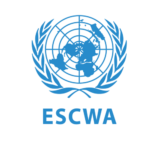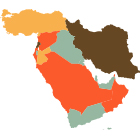Assessment of Business Regulatory Frameworks in the WANA Region for ESCWA
Background
The growing interest in legal and institutional reform for business facilitation and better governance in the Arab region has led governments, donors, and development agencies to increasingly focus their attention on improving the regulatory framework for doing business. Efficient markets and effective governance are essential for successful national development planning, fostering healthy competition, innovation, and sustainable growth. Regulatory reforms reduce barriers to competition and market openness, while also promoting transparency and reducing corruption, which are crucial for achieving the Sustainable Development Goals (SDGs) by 2030.
ESCWA is undertaking a Development Account project titled “Towards the Arab Horizon 2030: Enhancing Integrated National Development Planning in the Arab Region.” This project aims to support member countries in their national planning processes and to identify challenges for integrated and better-coordinated development planning. Within this framework, Triangle was commissioned by ESCWA to conduct an assessment and analysis of legislative regimes governing business regulation in the WANA region. The goal is to compile a comprehensive repository of existing legislation and identify the main challenges and recommendations for enhancing the efficiency of the regional business environment.
Triangle’s Assignment
- Review of Existing Legislation: Triangle began by reviewing the stock of regulations pertaining to foreign direct investment (FDI), competition, consumer protection, and anti-corruption in Arab countries. This involved collecting and analyzing relevant laws and regulations to understand the current legislative landscape.
- Development of an Interactive Repository: An interactive and user-friendly repository of the current business environment laws and regulations in the Arab region was developed. This repository allows for easy access to information and supports continuity in terms of future amendments and revisions.
- Best Practices Reflection: The project reflected best practices in international and regional regulations. This included identifying successful legislative frameworks and practices from other regions that could be adapted and implemented within the Arab context.
- Regulatory Framework Mapping: Triangle mapped the current regulatory framework for each country in the WANA region. This mapping exercise assessed existing legislations and identified the main challenges and gaps relative to international benchmarks and best practices.
- Comparative Evaluation Matrix: A comparative evaluation matrix was created to assess the current legislations in each member country. This matrix highlights what is available and what is not, providing a clear overview of the regulatory landscape.
- Technical Paper Development: Triangle developed a technical paper presenting the best international and regional practices in legislations pertaining to the business environment. This paper includes frameworks of laws and regulations on FDI, competition, consumer protection, and anti-corruption. Additionally, it provides an assessment of the main challenges and offers recommendations for a more efficient strategic planning process.
- Stakeholder Engagement: Engaging with key stakeholders, including government officials, legal experts, and business leaders, was essential to validate findings and ensure the proposed measures were practical and aligned with local needs.
- Capacity Building: The project emphasized building the capacity of local actors to implement and adapt the recommended regulatory reforms. Training sessions and workshops were conducted to equip stakeholders with the necessary skills and knowledge.
- Documentation and Reporting: The final deliverables included detailed reports providing an overview of the current regulatory landscape and outlining recommended actions to address identified gaps. These reports offer actionable insights for improving the business regulatory frameworks within the WANA region, thereby facilitating a more efficient and transparent business environment.
- Role of ESCWA and Responsibilities: The United Nations Economic and Social Commission for Western Asia (ESCWA) provided oversight and guidance throughout the project, ensuring alignment with broader development goals and national strategies. Responsibilities included reviewing and validating the analysis, facilitating logistical support, and coordinating with member countries to ensure successful implementation of the recommendations.
Project:
Assessment of business regulatory frameworks in the West Asia and North African (WANA) region for the United Nations Economic and Social Commission for Western Asia (ESCWA)

Duration:
April 2020 – June 2021
West Asia and North Africa
